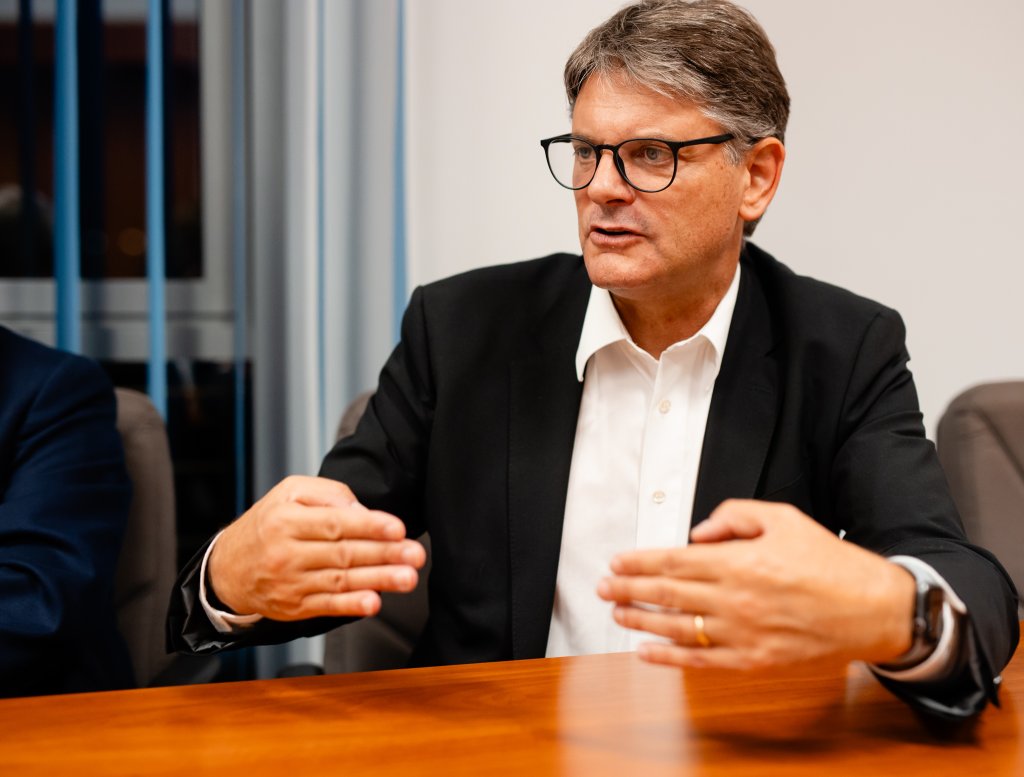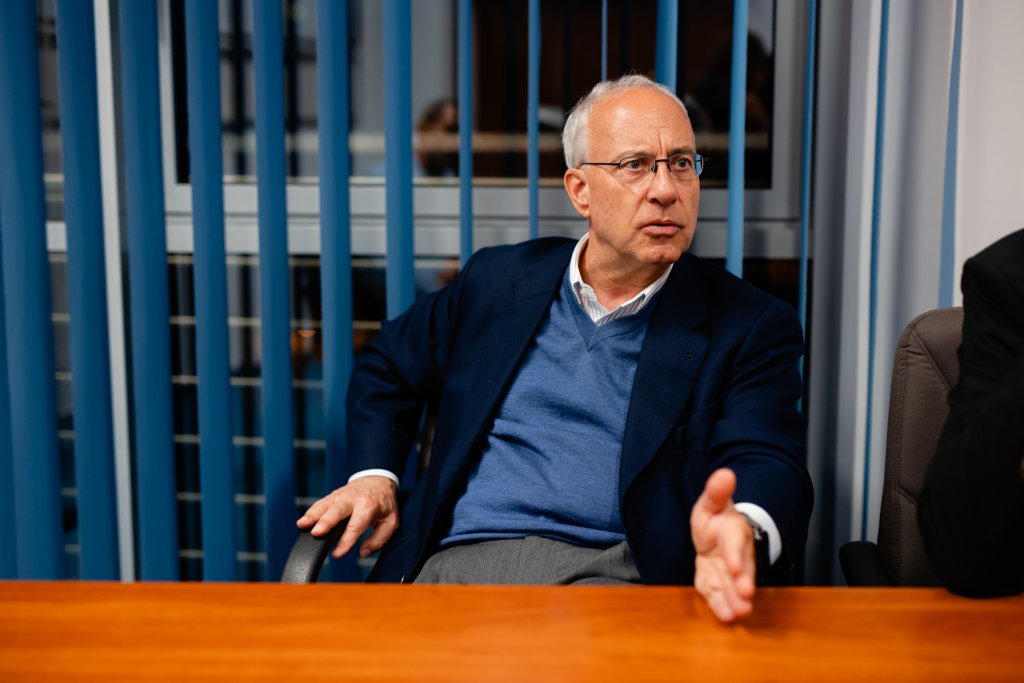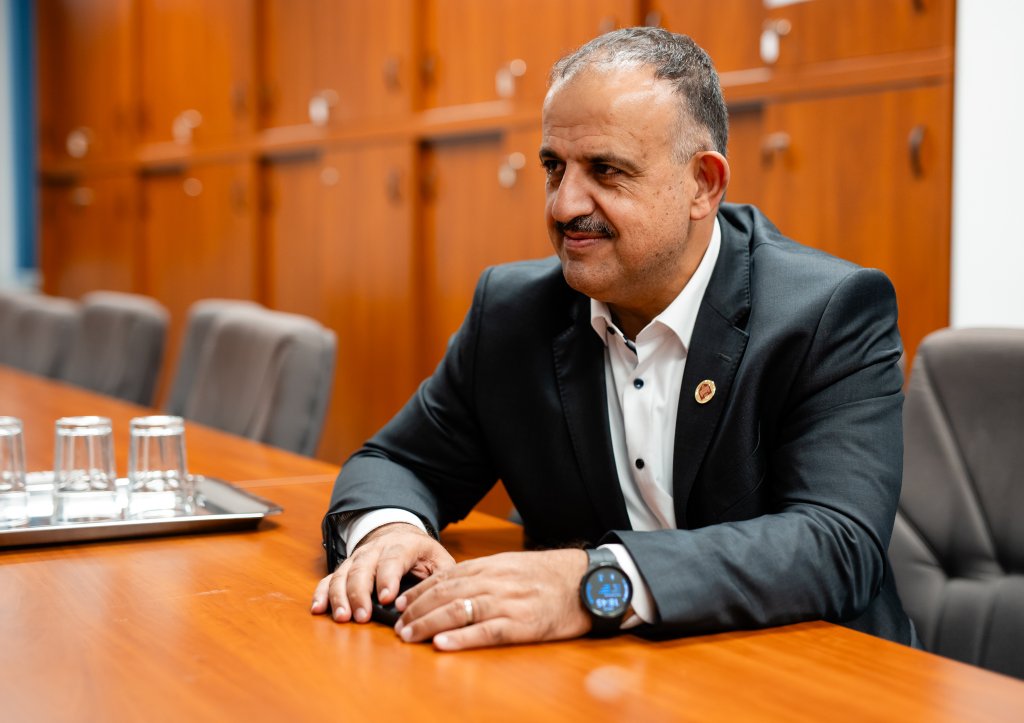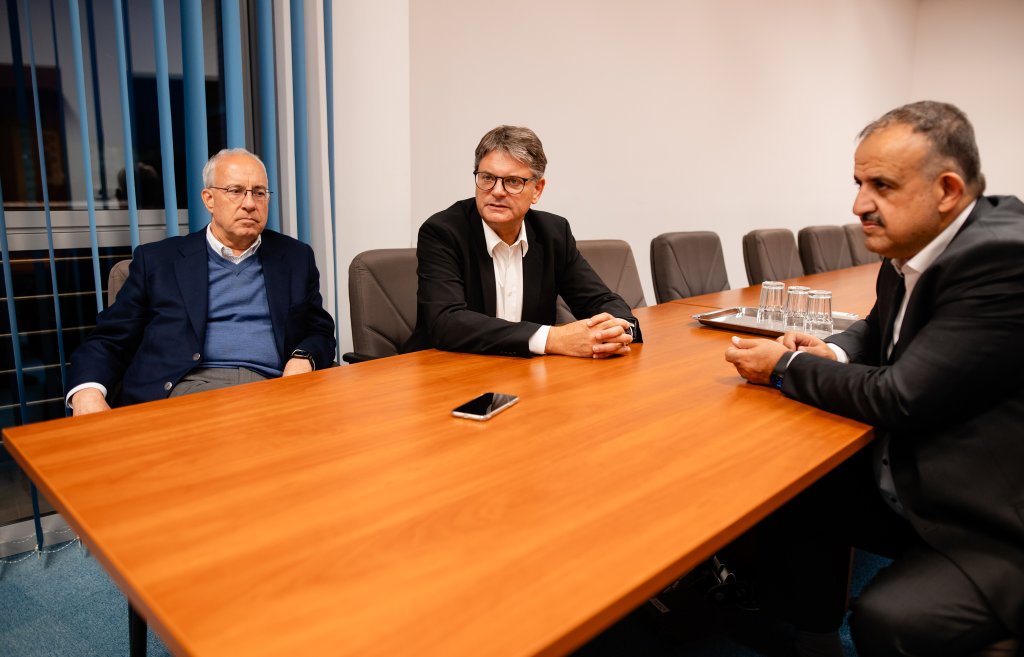Mr. Hornegger, you used to work for Siemens just like Mr. Martin did. What does this common background mean for the EELISA partnership?
Joachim Hornegger: If you want to have collaboration, rectors and presidents can sign documents. But at the end of the day, if you want to have a system alive, it’s important that you have personal relationships. And having this type of personal link, this is a great advantage.

Why do you think this kind of cooperation between the universities is important?
JH: There are several levels. First of all, academia does not care about political borders. You look for the best people in your field and you collaborate. Second, it’s important that European universities are closely linked to develop a common culture. You have the language barriers, you have all the historical part, but on the other hand, we know since World War II that Europe is the recipe for a peaceful partnership and academia will contribute to that. And the third level is we are in an international competition. The best thing European universities can do is to collaborate and build up a high-performance environment, that can compete with the American, Chinese, Indian universities.
Hassan Charaf: The competitiveness of the region is very crucial now. Much more than any time before.
JH: Innovation is our source and it also drives our living standard, our economy. If we do work together on this, I think we will achieve way more than we would one our own.
And what future do you see specifically for EELISA in the next five years?
“JH: Our major task now is to adjust the education programs students can switch between. Once you attend a lecture in Budapest or Paris, Madrid or Erlangen, it should be on the same standard and be accepted at the various institutions.
Do you think the association should extend?
JH: I think we should first make it fly and try to achieve our goals and then we can talk about a further extension.
Dale Martin: Ten universities from Madrid to Istanbul, in eight countries – those are already solid numbers and a sufficient challenge to manage.

You came to BME two years ago for a ceremony with Nobel Prize-winning scientist Konstantin Novoselov. Is there a specific purpose of your present visit?
JH: I’m currently visiting member universities, I was in Madrid three days ago, went to Pisa the following day, then to Paris before arriving here. But one of the reasons I’m here is that you have a new rector. It’s important that we know each other personally because this allows us to move things forward way more easily than just by sending emails. We met in the virtual space before, I think the chemistry was fine from the beginning, but seeing the labs, watching the colleagues talking to students, these are also opportunities to connect.
Do you see any kind of bilateral cooperation opportunities between FAU and BME?
JH: We already talked about that during my last visit because the ecosystems here and in Erlangen are a perfect fit. We also visited several companies that have offices both in Erlangen and in Budapest. That’s what EELISA is about: bringing together two universities with a similar focus with companies that are innovation leaders in their particular fields.
DM: Next week a professor from FAU is coming to BME, so I trust that we can arrive at defining specific and very focused programmes. After all, the exchange programmes are not only between universities or their rectors, but between individual faculties.
JH: Yes, we have to have the link at that level because if one student attends a lecture here, our professors have to be sure that it’s a really add-on – and vica versa. I think this is just a matter of looking into it, communicating, adjusting, then it will fly. Because the engineers that graduate here are on a similar level as the German engineers.
HC: Sure, I think EELISA is now a platform for us to open doors for bilateral or multilateral cooperation.

The EELISA executive board is having its annual meeting here in January. What should be the main topic of the discussion?
DM: To move on and become more specific with more tangible results. We have defined milestones, and the executive board is in charge of checking the milestones and the achievements, identify the weaker points and work on them.
Mr. Martin, as re-elected president of EELISA, in what direction do you think the association is heading now?
DM: I believe that EELISA is a valuable opportunity to enhance transformation of the universities, while at the same time enabling all of us to achieve a higher degree of integration, focusing on specific strengths of the individual universities. Students and researchers can benefit from this; doing things together internationally is much better and more exciting than just confining yourself to your own universitiy.
JH: Also, European funding requires having researchers from different countries. And if the researchers know each other, that helps a lot because they don’t have to team up from the scratch when applying jointly for a grant. The trust is already there. And if you talk to industry today, it’s even more important that students show mobility during their studies. Let’s say, doing a bachelor here, a master’s in Erlangen and a PhD in Pisa.

And does the rector of the BME have any specific goals in utilising the ELISA partnership?
HC: In Europe, if we don’t have good cohesion among the universities, I think we don’t have any chance to have the critical mass to show outside the region. For competitiveness, you have to have R&D and if you want to be competitive on global level, cooperation is not a choice, it’s a must for every player dealing with R&D. This is my understanding, and not only for EELISA. That’s why, for instance, micro-credantials should be part of our higher education culture and it is a big challenge to achieve that. We should collect, integrate these values together. For us, EELISA is an open-end opportunity to have many more good ideas, good practices exchanged and shared.
pg

